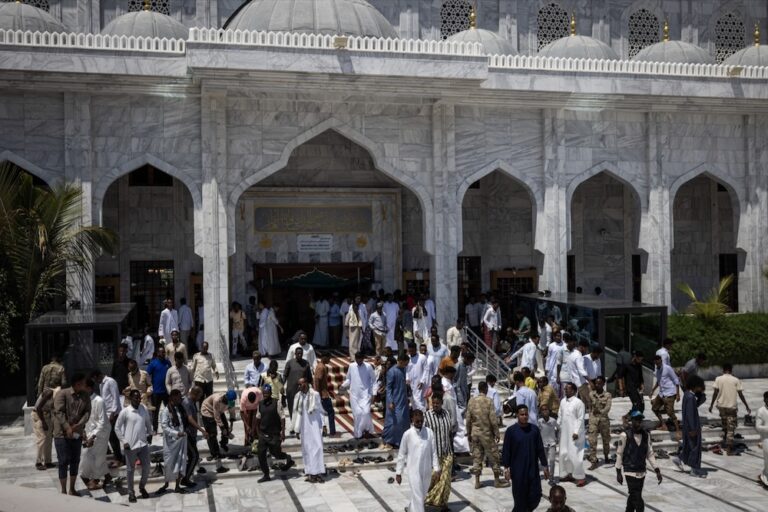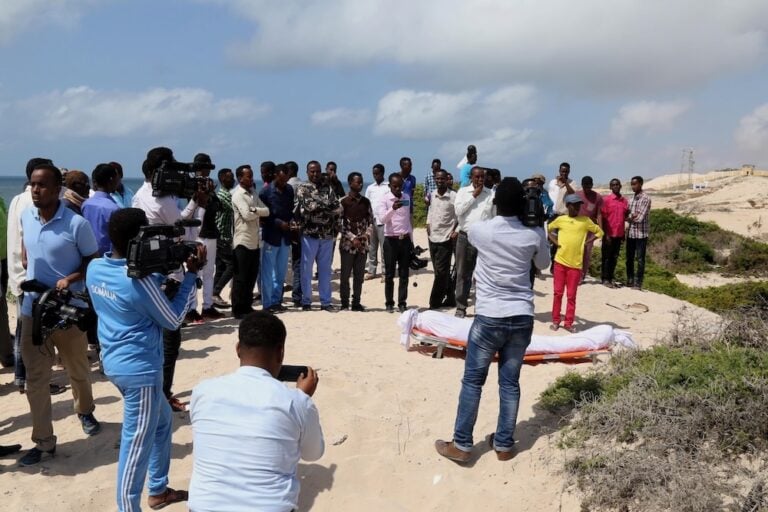(RSF/IFEX) – Reporters Without Borders said it was baffled by the arrest of Radio Shabelle reporter Mohammed Bashir Sheik Abdirahman and his driver Osman Qoryoley on the morning of 21 March 2007 in Mogadishu and called on the transitional federal government to adhere to the undertakings to ensure respect for press freedom that it gave […]
(RSF/IFEX) – Reporters Without Borders said it was baffled by the arrest of Radio Shabelle reporter Mohammed Bashir Sheik Abdirahman and his driver Osman Qoryoley on the morning of 21 March 2007 in Mogadishu and called on the transitional federal government to adhere to the undertakings to ensure respect for press freedom that it gave during a conference during the same week on media policy.
“If the transitional government really wants to pursue a policy for the protection of the media, it must begin by getting the security forces to respect journalists,” the press freedom organisation said. “It is unacceptable that a journalist is roughed up and arrested just for doing his job. The emergence of a free and independent press requires a climate of trust between journalists and the authorities.”
Abdirahman and his driver were arrested at Mogadishu international airport when they arrived for a news conference which Prime Minister Ali Mohammed Ghedi was supposed to give there. Muhiadin Omar Jimale, another radio journalist, was also stopped and would probably have been arrested, but he managed to escape.
Local sources said Abdirahman was beaten by security agents before being placed in custody. The National Union of Somali Journalists (NUSOJ) called for the release of the two Radio Shabelle employees and condemned “the mistreatment of journalists who were just doing their job.”
The incident comes on the heels of the three-day Conference on Media Development Policy held in Baidoa from 18 to 20 March. Reporters Without Borders commends the NUSOJ for organising the conference jointly with the information ministry. More than 50 representatives from the government, parliament, human rights groups and media organisations took part, discussing such issues as how to protect free speech and the safety of journalists, how to regulate the media and ensure their independence, and the creation of public media.
Information minister Madobe Nunow Mohammed said the government “accepts all the recommendations that emerged from the conference and will use them as the basis for media legislation.” An 11-member team was created to monitor implementation of the decisions. The NUSOJ told Reporters Without Borders it was a major step forward for the media in Somalia.


